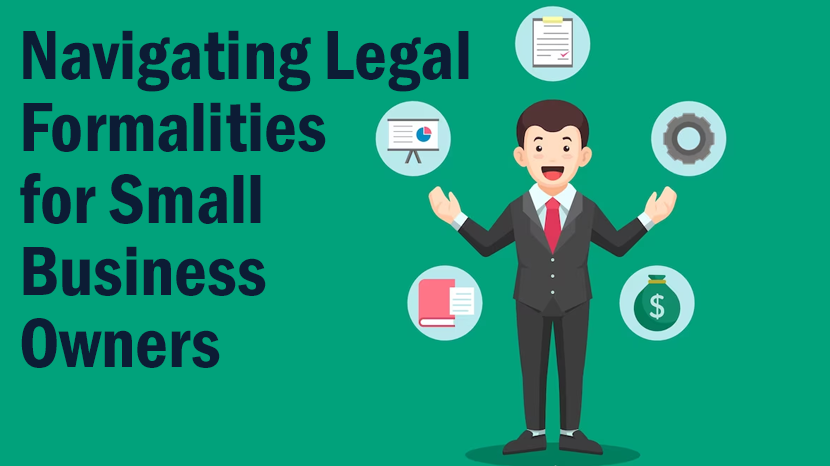As a small business owner, navigating legal formalities can be a daunting task. From registering your business to obtaining the necessary licenses and permits, there are several legal requirements that must be met in order to operate your business successfully. Failure to comply with these regulations can result in costly fines and legal disputes. In this article, we will discuss some important legal formalities that small business owners should be aware of and provide tips on how to navigate them.
- Registering Your Business: One of the first steps in starting a small business is to register it with the appropriate authorities. This typically involves registering with the state in which you plan to operate and obtaining a tax identification number from the Internal Revenue Service (IRS). Depending on the type of business you are starting, you may also need to register with local authorities or obtain specific licenses and permits.
- Obtaining Licenses and Permits: Depending on the type of business you operate, you may be required to obtain various licenses and permits. For example, if you are opening a restaurant, you will need to obtain a food service permit and liquor license. If you are starting a construction business, you may need to obtain a contractor’s license. Failure to obtain the necessary licenses and permits can result in fines and legal issues.
- Protecting Your Intellectual Property: As a small business owner, it is important to protect your intellectual property, such as trademarks, patents, and copyrights. These assets are valuable and can help distinguish your business from competitors. Consider working with a lawyer to register your intellectual property and protect it from infringement.
- Complying with Employment Laws: If you plan to hire employees, it is important to comply with federal and state employment laws. This includes following minimum wage laws, providing employee benefits such as healthcare and retirement plans, and complying with anti-discrimination laws.
- Understanding Tax Obligations: As a small business owner, you are responsible for paying taxes on your business income. This includes federal income tax, state income tax, and self-employment tax. Failure to pay these taxes can result in penalties and legal issues.
Navigating legal formalities as a small business owner can be overwhelming, but it is critical to your success. By taking the time to understand the legal requirements of your business and working with legal professionals when necessary, you can ensure that your business is operating legally and avoid costly fines and legal disputes.
Are you ready to take your business to the next level? Corpbale is here to help. Our team of expert consultants can provide comprehensive solutions to help businesses of all sizes grow and expand. From creating a customized plan to implementing it and ensuring success, we offer end-to-end support to help you achieve your goals. Let us help you establish your brand identity, develop your presence, and expand your reach through various strategies. Contact us today at +919305914850 and let’s begin this journey together towards higher sales, higher revenue, and greater success.

